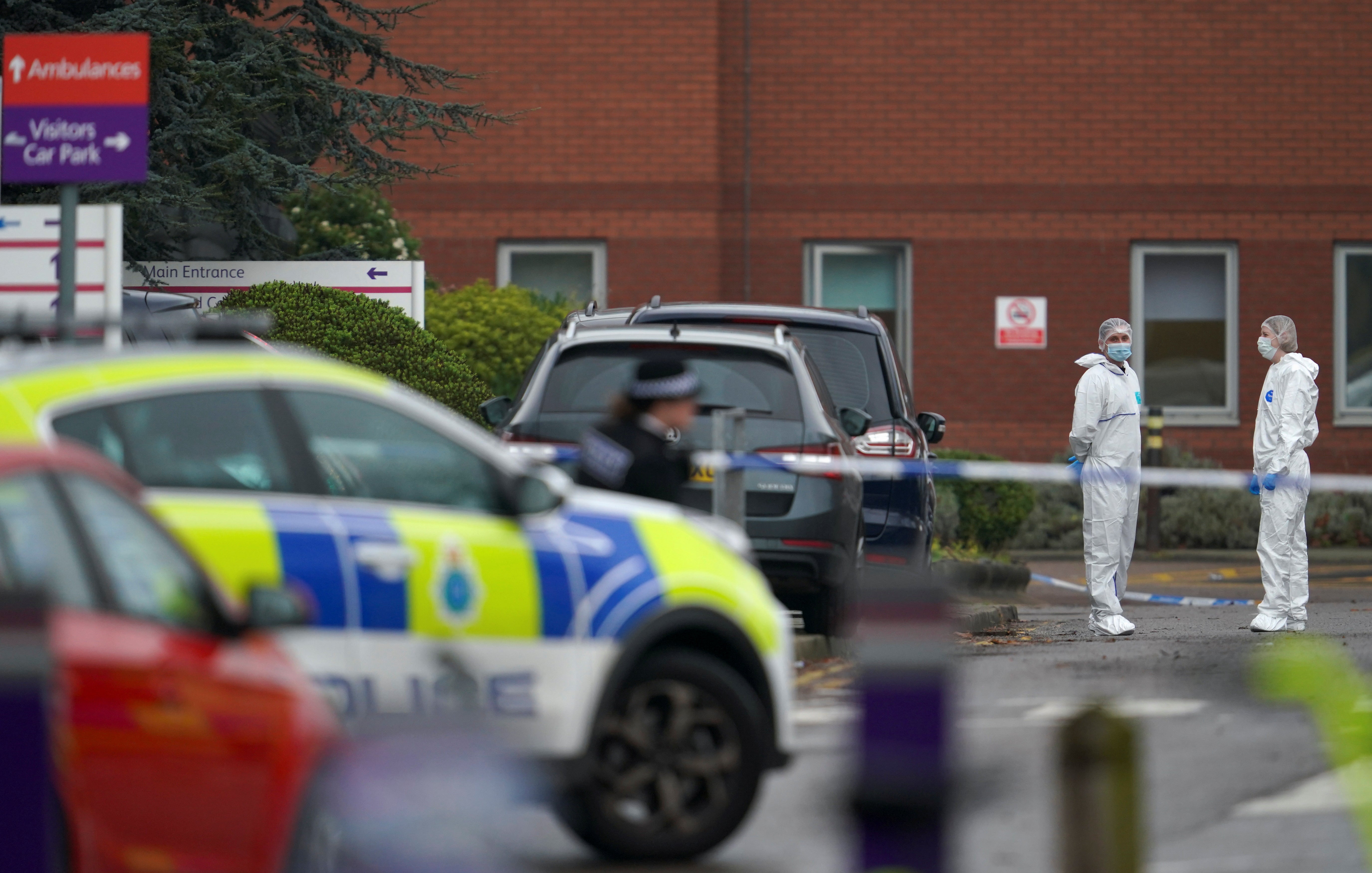Liverpool hospital bomb: Emad al-Swealmeen had been planning attack since April, police confirm
Investigators say purchases for attack had been made for ‘at least’ seven months
The terrorist who blew himself up outside Liverpool Women’s Hospital had been planning an attack since at least April, police have said.
Investigators believe Emad al-Swealmeen, 32, built his bomb at a rented flat in the Sefton Park area of the city and are also checking for explosive materials at separate asylum accommodation where he lived.
He caught a taxi from the Rutland Avenue area shortly before 11am on Remembrance Sunday and asked to be taken to the hospital, where the device partially detonated as the car pulled up at the main entrance.
Assistant Chief Constable Russ Jackson, the head of Counter Terrorism Policing North West, said: “A complex picture is emerging over the purchases of the component parts of the device.
“We know that Swealmeen rented the property [in Rutland Avenue] from April this year and we believe relevant purchases have been made at least since that time.”
The length of planning and preparation for the attack will spark fresh questions over why the plot was not detected by security services. The Independent understands the suspect was not previously known to MI5 or counter-terror police.
The explosion was the second incident to be declared a terror attack within a month in Britain, causing the national terror threat level to be raised from substantial to severe.
On Wednesday afternoon, the cordon around the asylum accommodation where Swealmeen lived, around two miles away from Rutland Avenue, was expanded as a precaution “to allow officers to make an assessment of materials found” in new searches.
A Royal Logistics Corps bomb disposal vehicle was seen at the scene in Sutcliffe Street as nearby buildings were evacuated, and residents living within the cordon were told they could not return home.
Earlier on Wednesday, police said Swealmeen had died of injuries sustained during the explosion and fire inside the taxi.
Liam Spencer, a 21-year-old delivery driver who used to work at the hospital, told the Liverpool Echo how he was caught up in the blast while visiting former colleagues.
He said he heard a “loud bang” and ran outside to see a taxi explode. Mr Spencer said he saw the driver had got out, but then noticed a passenger still inside the car.
“I didn’t want to injure myself but I was looking at the best way to get him out of the car,” he added. “As I got close the flames engulfed him and that’s when I ran to go and get a fire extinguisher.”
Police have not confirmed the motivation for the attack but believe Swealmeen acted alone at this stage.

“At this time we are not finding any link to others in the Merseyside area of concern but this remains a fast-moving investigation and as more becomes known we cannot rule out action against others,” Mr Jackson said.
“We continue to appeal for people who knew him, especially those who associated with him this year as we try and piece together the events leading up to this incident and the reasons for it.”
The officer confirmed that the bomber “had episodes of mental illness”, which were forming part of the investigation.
The Mersey Care NHS Foundation Trust, which provides mental health services in the region, said they could not currently give details of any treatment.
A spokesperson said: “We can confirm Swealmeen had previously accessed our services but was not a service user at the time of the incident.”
His nationality has not been officially confirmed, but a relative traced by police said Swealmeen had been born in Iraq.
The Home Office refused his asylum application in 2014, and he lost an appeal at the First-tier Tribunal of the Immigration and Asylum Chamber. An attempt to take the case further was turned down in 2017.
Swealmeen, who changed his name to Enzo Almeni after arriving in the UK around seven years ago, told friends he was of Syrian origin but authorities were unconvinced.
Friends believe he may have lodged a fresh asylum claim after the first was exhausted, and by the time of the attack he was living in shared accomodation run by government contractor Serco.
The Home Office has refused to confirm Swealmeen’s immigration status, or whether it was considering an asylum application at the time of the bombing.

While his first asylum application was being considered, he was arrested for a knife offence.
In 2015, Swealmeen pleaded guilty to possession of a blade in a public place at Liverpool Magistrates’ Court.
He was given a conditional discharge and was not supervised by probation, but friends believe he underwent compulsory mental health treatment after the incident.
It was also in 2015 that Swealmeen is believed to have first expressed his intention of converting to Christianity.
He underwent an Alpha course over several months, which introduces people to the faith, and was baptised later in 2015.
A spokesperson for Liverpool Cathedral said he attended regularly leading up to his confirmation in 2017, but then “lost contact” the following year.
The City of Liverpool College confirmed to The Independent that in September 2018, Swealmeen undertook a cake decorating course that lasted until summer 2019.
Speaking in the House of Commons on Tuesday, the policing minister Kit Malthouse said the investigation had yet to establish the full picture of Swealmeen’s online and offline activities, lifestyle and associates.
“The police have stated that the motivation for this incident is yet to be understood,” he added.
“However, this is a further stark reminder about the threat we all face from terrorism. Our world-class security and intelligence agencies and counter-terror police work night and day to keep us safe.”


